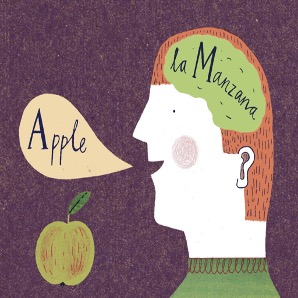The study examined how young monolingual and bilingual children exploit a speaker's eye gaze direction to learn new names for objects. It was found that monolingual and bilingual children learn differently from an eye gaze cue, where bilingual children were quicker to learn the new names in the moment of teaching, while the monolingual children were better able to remember the new words at a later time. These findings suggest that bilingualism shapes children's attention to a speaker's gaze during word learning, but that, ultimately there is no bilingual advantage for using this cue in the service of word retention.
Word learning in monolingual and bilingual children: The influence of speaker eye-gaze
Word learning in monolingual and bilingual children: The influence of speaker eye-gaze
- Ishanti Gangopadhyay, Kaushanskaya, M.
- Publication Date
2021 - Website
- Publication information
 The College of Arts
The College of Arts